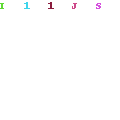Introduction
A bond coupon is the annual interest payment made by the issuer of a bond. The coupon rate is expressed as a percentage of the bond’s par value, and it remains fixed throughout the life of the bond. Coupons are paid semi-annually, and they can be reinvested in the bond until it matures.
What is a bond coupon?
A bond coupon is the interest rate that the bond pays continuously until it matures. For example, if a bond has a 6% coupon, then the bondholder will receive $60 per year for every $1,000 face value of the bond. The coupon payments are usually made semi-annually, but may be made more or less frequently.
How do bond coupons work?
Bond coupons are a type of interest payments made by the issuer of a bond. Coupons are generally issued semi-annually, and they represent the bond’s yield. For example, if a bond has a coupon rate of 5%, the issuer will make interest payments to the bondholder twice a year—once for each six-month period—in an amount equal to 2.5% of the face value of the bond.
There are two types of bonds that do not have coupons: zero-coupon bonds and premium bonds. Zero-coupon bonds are issued at a discount to face value, and they do not make periodic interest payments. Instead, the investor receives one payment at maturity that includes both the principal and accrued interest. Premium bonds are issued at a price above face value, and they make periodic interest payments that are less than the coupon rate; in effect, the investor is paying for some or all of the interest upfront.
Find further sources of information in what is principal? article, as well as in what is simple interest?.
Advantages and disadvantages of bond coupons
Bond coupons are payments made by the bond issuer to the bondholder. The payments are typically made semi-annually, and they represent a portion of the interest payments that the issuer will make over the life of the bond.
The advantages of bond coupons include:
-They provide a stream of income for the bondholder.
-They can be used to reinvest in other bonds or securities.
-They can be sold or traded if the bondholder needs cash.
The disadvantages of bond coupons include:
-The payments may not keep up with inflation.
-The payments may be taxable.
-The bondholder may not be able to sell or trade the coupons.
Conclusion
A bond coupon is the periodic interest payment made by the issuer of a bond. The coupon is a percentage of the bond’s par value, which is the face value of the bond. The coupon rate is fixed for the life of the bond.

Leave a Reply